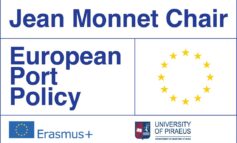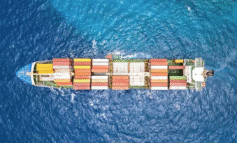The International Association of Ports and Harbors (IAPH) has produced the first dashboard and report for its World Ports Tracker – prepared by PortEconomics co-directors Theo Notteboom and Thanos Pallis.
The World Port Tracker sources data from ninety-six ports from eight regions of the world, producing first dashboard and report for members
This is the first report of its kind, aiming to track critical aspects in the global port industry based on cargo and shipping trends at a time when the global supply chain is facing unprecedented challenges. With the ongoing global supply chain crunch and the resurgence of the cruise industry impacting many of the world’s ports, the report also delves into hinterland connectivity, warehouse utilization and regional analyses of the data collected from small and large seaports and river ports alike as well as obtaining forecasts from respondents on how they see vessel call, cargo and passenger volumes in the upcoming twelve months.
IAPH managing director Patrick Verhoeven commented: “ports are being impacted by constant geopolitical upheaval, climate change, shifts in trading patterns, and local disruptions at berth and on the land side. It fully justifies our efforts to establish continuity with this World Ports Tracker in order to keep our membership informed on the current situation as seen by ports and how they see the months ahead. We call upon members to respond to join those 96 ports receiving the full report by responding to the next survey in mid-October.”
The co-authors are Professor Theo Notteboom and Professor Thanos Pallis, who also wrote the regular IAPH-WPSP COVID19 Port Economic Barometer report during the main first waves of the global pandemic and who will now produce this quarterly report for IAPH members.
Co-author Theo Notteboom commented: “It is exciting to see so many world ports contributing to this survey-based exercise. The wide geographical distribution of the responses enabled us to present meaningful regional comparisons on key developments in cargo and passenger ports. We hope that the findings will inspire even more ports to embark on the IAPH World Ports Tracker journey”
Thanos Pallis added: “Giving space to every merchant cargo segment, the IAPH World Ports Tracker separately details the dynamics in the container, bulk, tanker and gas, and other carriers’ markets. The full report, that is available to participating ports, reveals some notable regional variations of trends in cargo and passenger ports, enabling them to apply informed practices and advance the best strategies forward.”
The September-October edition of the IAPH members’ magazine Ports & Harbors will feature a summary of this first detailed survey-based report. It will also be combined with a summary of second quarter container port statistics from 2022 based on S&P Global Port Performance Program data which offers aggregated vessel call numbers, vessel size analyses, the evolution of call size (number of TEUs handled per call), and port moves per hour, aggregated per region.
Following the end of the third quarter, the next survey questionnaire will go out in mid-October, with any participating ports receiving the full report incorporating S&P and the global survey data by mid-November. A summary of this full report will appear in the first edition of Ports & Harbors in the New Year.












